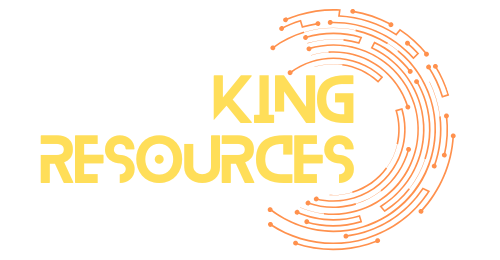Home equity growth is like that friend who shows up uninvited but ends up being the life of the party. As property values rise, homeowners find themselves sitting on a goldmine, often without even realizing it. Instead of letting that potential sit idle, savvy homeowners are tapping into their equity to fund dreams, pay off debts, or even take that long-awaited vacation to the Bahamas.
Table of Contents
ToggleUnderstanding Home Equity Growth
Home equity growth represents the increase in the value of a homeowner’s stake in their property. This concept is critical for homeowners seeking to leverage their investment effectively.
Definition of Home Equity
Home equity refers to the current market value of a property minus any outstanding mortgage balances. For example, if a home is valued at $300,000 and the owner owes $200,000, the home equity equals $100,000. This equity serves as an essential financial resource and can be accessed for loans, lines of credit, or cash-out refinancing. Homeowners often see equity grow as property values increase over time, allowing them to utilize this asset for various financial needs.
Factors Influencing Home Equity Growth
Several factors drive the growth of home equity. First, rising property values contribute significantly. When the local real estate market flourishes, homeowners benefit from increased home prices. Second, loan repayments also play a role. As individuals make monthly payments on their mortgages, they gradually build equity through principal reduction. Third, home improvements can enhance property value. Renovations or upgrades often lead to higher appraisals, increasing overall equity. Market trends, local demand, and economic conditions equally affect home equity growth and should not be overlooked.
The Importance of Home Equity Growth
Home equity growth serves as a critical component of financial well-being. It empowers homeowners to access additional resources for various needs.
Financial Security
Financial security stems from building home equity. As equity accumulates, it enhances stability and resilience against economic uncertainties. Homeowners can tap into this equity for emergencies or substantial expenses. Instead of relying solely on savings or high-interest loans, pulling from home equity often provides a lower-cost alternative. Accessing funds via a home equity line of credit or a cash-out refinance can also mitigate financial strain during difficult times. Consequently, home equity acts as a safety net, contributing to long-term financial health.
Investment Opportunities
Investment opportunities abound through home equity growth. Homeowners can utilize their equity to finance new investments in properties or businesses. By reinvesting equity, individuals can generate additional income streams. Equities in real estate expand options, as they may lead to rental properties or flips that capitalize on market trends. With careful planning, using home equity for investments often yields significant returns. Homeowners should research local markets and assess potential growth areas before committing to investments. Exploring these avenues enables homeowners to leverage their home’s value while building wealth.
Strategies to Increase Home Equity
Homeowners can take specific actions to boost their home equity effectively. Focusing on targeted improvements and staying informed about market shifts proves beneficial.
Home Improvements
Investing in home improvements directly impacts property value. Upgrading kitchens and bathrooms often brings high returns, with remodels providing an average return on investment of roughly 70-80%. Enhancements like energy-efficient windows or additional living space also increase appeal and value. Regular maintenance, such as roof repairs and landscaping, contributes to preserving property integrity. By prioritizing these upgrades, homeowners can cultivate long-term equity growth.
Market Trends
Staying updated on market trends influences home equity growth. When property values rise in a neighborhood, homeowners naturally see increases in equity. Economic factors, such as interest rates and local job markets, drive these trends. Monitoring fluctuations in housing demand helps homeowners time their selling or refinancing decisions strategically. Understanding regional developments can also provide insights into future uphill or downhill trends. Engaging with real estate platforms offers timely data on localized market conditions.
Risks Associated with Home Equity Growth
Home equity growth, while beneficial, carries certain risks that homeowners should consider. Understanding these risks helps in making more informed decisions regarding property investments.
Market Fluctuations
Market fluctuations can significantly impact home equity. Values may increase or decrease based on local demand and economic conditions. An unexpected downturn could lead to decreased property values, reducing equity. For example, a sudden economic recession might result in a drop in home prices, leaving homeowners with less equity than anticipated. Those relying on high equity for future financial moves could find themselves in a precarious situation. Monitoring local market trends remains essential for assessing potential risks effectively. Homeowners should remain vigilant to protect their investment against unpredictable market changes.
Borrowing Against Equity
Borrowing against equity introduces financial risk. Homeowners often consider equity loans or lines of credit as easy ways to access funds. However, taking on extra debt can strain finances, particularly if property values decrease. Monthly payments may exceed the homeowner’s budget, leading to potential foreclosure in severe cases. Lenders evaluate the ability to repay loans, emphasizing the importance of understanding one’s financial capacity. Over-leveraging equity reduces the financial safety net that homeowners typically seek. Consideration of long-term implications before borrowing against home equity is crucial for maintaining financial health.
Home equity growth presents a valuable opportunity for homeowners to enhance their financial well-being. By understanding the dynamics of property value increases and strategic improvements, they can unlock significant equity. This resource not only offers a safety net during economic uncertainties but also opens doors to potential investments and fulfilling personal goals.
However, it’s crucial to approach home equity with caution. Market fluctuations can impact values, and borrowing against this equity carries inherent risks. Homeowners should stay informed and make well-considered decisions to ensure they harness the benefits of home equity growth while safeguarding their financial future.









